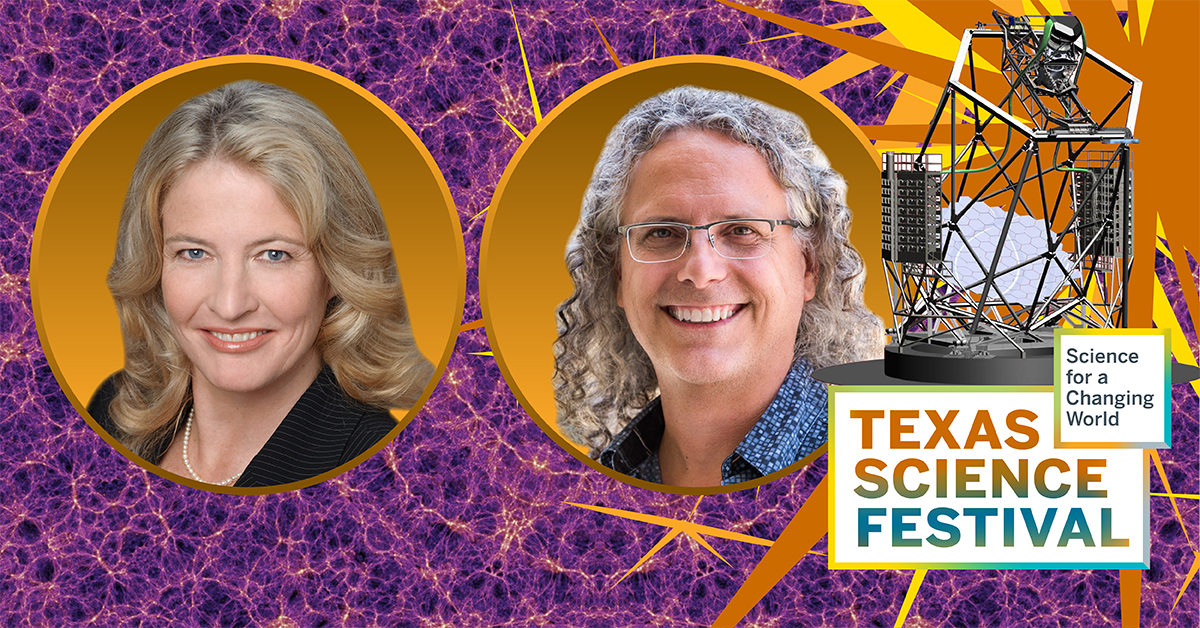Events
Tuesday, March 16, 2021, 12:00pm - 12:45pm
Contact cnsdev@austin.utexas.edu
This talk is part of the Texas Science Festival (Feb. 16-Mar. 26). Click here to register and to see a schedule of all the events.

The ordinary atoms that make up the known universe—from us and the air we breathe to the planets and stars—constitute only 5% of all matter and energy in the cosmos. The remaining 95% is made up of a recipe of 25% dark matter and 70% dark energy. Learn from two scientists on the cutting edge of discovery about these mysterious, nonluminous components of our cosmic cocktail. You’ll hear from a recent inductee to the National Academy of Sciences and the astrophysicist now leading a team to measure the expansion rate of the universe from 10 billion years ago.
Featuring:
- Dr. Katherine Freese holds the Jeff and Gail Kodosky Endowed Chair in Physics at UT Austin. Dr. Freese, a theoretical astrophysicist, is known for her work in theoretical cosmology at the interface of particle physics and astrophysics. She has been working to identify the dark matter and dark energy that permeate the universe and build a successful model for the early universe immediately after the Big Bang. She was recently elected to the National Academy of Sciences. Her book, The Cosmic Cocktail: Three Parts Dark Matter, was published by Princeton University Press.
- Dr. Karl Gebhardt is the Herman and Joan Suit Professor of Astrophysics in the Department of Astronomy at UT Austin. Most of his career has focused on understanding the role of black holes in the formation of galaxies. He has measured more black hole masses than anyone in the world. His current work is focused on understanding dark energy with the Hobby-Eberly Telescope Dark Energy Experiment (HETDEX). He has received several awards, including a Hubble Fellowship from NASA, Teaching Excellence Awards from the University of Texas and McDonald Observatory Board of Visitors, and a National Science Foundation Career Award.
Location: sciencefest.utexas.edu














